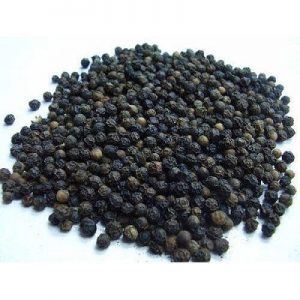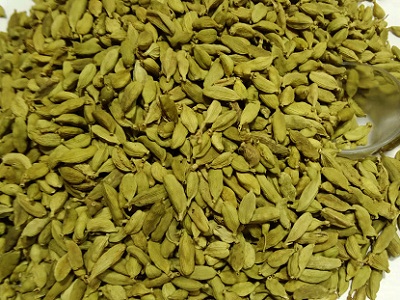 Black pepper is a versatile and widely used spice that comes from the dried fruit of the Piper nigrum plant. It’s a staple in cuisines around the world, adding a pungent, slightly spicy flavor to a variety of dishes.
Black pepper is a versatile and widely used spice that comes from the dried fruit of the Piper nigrum plant. It’s a staple in cuisines around the world, adding a pungent, slightly spicy flavor to a variety of dishes.
Here’s a breakdown of black pepper and its uses:
Flavor Profile:
Pungent: Black pepper has a distinct, sharp, and biting taste due to the presence of a compound called piperine.
Warm: It adds a warming sensation to food.
Slightly Sweet: There’s a subtle sweetness underlying the heat.
Aromatic: Black pepper has a characteristic aroma that complements its flavor.
Uses in Cooking:
Seasoning: Black pepper is used to season almost any type of dish, from savory to sweet. It enhances the flavor of meats, vegetables, soups, sauces, and more.
Flavoring: It’s a key ingredient in spice blends like garam masala and is used to flavor rubs, marinades, and dressings.
Preservation: In the past, black pepper was used as a preservative due to its antimicrobial properties.
Garnish: Whole peppercorns or freshly cracked pepper can be used as a garnish for visual appeal and a burst of flavor.
Forms of Black Pepper:
Whole Peppercorns: These are the dried whole fruits of the pepper plant. They have the longest shelf life and offer the freshest flavor when ground.
Ground Black Pepper: Pre-ground pepper is convenient but loses its flavor more quickly than whole peppercorns.
Cracked Black Pepper: These are coarsely ground peppercorns, offering a bolder texture and flavor.
Health Benefits:
Black pepper contains compounds that have potential health benefits:
Antioxidant: Piperine acts as an antioxidant, helping to protect cells from damage.
Anti-inflammatory: It may have anti-inflammatory properties.
Improved Nutrient Absorption: Black pepper can enhance the absorption of certain nutrients, such as curcumin in turmeric.
Digestive Aid: It may stimulate digestive enzymes.
Other Uses:
Traditional Medicine: Black pepper has been used in traditional medicine systems like Ayurveda for various purposes.
Aromatherapy: Black pepper essential oil is used in aromatherapy for its warming and stimulating properties.
Important Notes:
Freshness: For the best flavor, use freshly ground black pepper whenever possible.
Storage: Store whole peppercorns in a cool, dark, and dry place. Ground pepper should be stored in an airtight container.
Moderation: While black pepper is generally safe, excessive consumption may cause digestive issues in some individuals.
Black pepper is a versatile and essential spice that adds depth and complexity to a wide range of dishes. Its distinct flavor and potential health benefits make it a valuable addition to any kitchen.
Black pepper comes from the dried fruit of the Piper nigrum plant, which is a vine native to the tropical regions of South and Southeast Asia.
Where it’s grown:
Native Region: Black pepper originated in the Malabar Coast of India, in what is now the state of Kerala. This region is still known for producing high-quality black pepper.
Major Producers: Today, black pepper is cultivated in many tropical countries around the world. The top producers include Vietnam, Indonesia, Brazil, India, Sri Lanka,, China & Malaysia
Growing Conditions: Black pepper thrives in hot and humid climates with high rainfall. It’s typically grown on vines that are supported by trees or trellises.
Cultivation in India: In India, black pepper is primarily grown in the southern states of Kerala, Karnataka, and Tamil Nadu. These regions have the ideal climate and soil conditions for pepper cultivation.
So, while black pepper originated in India, it’s now a globally cultivated spice, with several countries contributing to its production.


